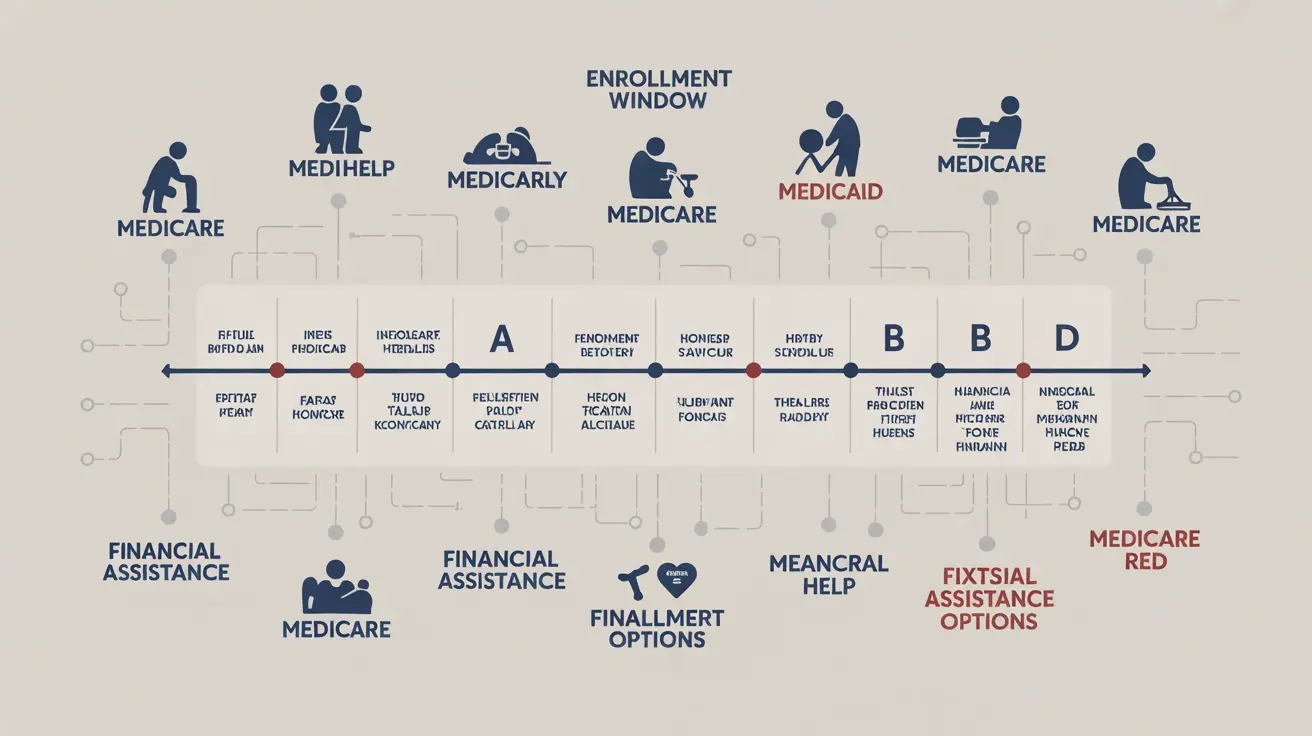If you receive Social Security Disability Insurance (SSDI), understanding your Medicare costs and coverage options is essential for managing your healthcare benefits effectively. Many SSDI recipients have questions about Medicare premiums, coverage start dates, and available financial assistance programs.
This comprehensive guide will explain everything you need to know about Medicare coverage while receiving SSDI benefits, including premium requirements, enrollment timing, and options for financial assistance.
Understanding Medicare Coverage with SSDI
When you qualify for SSDI benefits, you'll typically become eligible for Medicare after a 24-month waiting period. This period begins from the date you start receiving SSDI payments, not from your disability onset date.
There are some exceptions to this waiting period, such as for individuals with End-Stage Renal Disease (ESRD) or Amyotrophic Lateral Sclerosis (ALS), who may qualify for Medicare coverage more quickly.
Medicare Costs for SSDI Recipients
Medicare Part A Premiums
Most SSDI beneficiaries receive Medicare Part A (hospital insurance) premium-free. This is because you've paid Medicare taxes through your work history before becoming disabled. If you don't qualify for premium-free Part A, you may need to pay up to several hundred dollars monthly.
Medicare Part B Premiums
Medicare Part B (medical insurance) typically requires a monthly premium for all beneficiaries, including SSDI recipients. The standard Part B premium amount changes yearly, and most beneficiaries pay this standard amount.
Financial Assistance Programs
Several programs can help SSDI recipients who struggle with Medicare costs:
- Medicare Savings Programs (MSPs)
- Extra Help for prescription drug coverage
- State-specific assistance programs
- Medicaid dual eligibility
Medicare Enrollment Considerations
While enrollment in Medicare Parts A and B is often automatic for SSDI recipients, there are important considerations regarding timing and coverage choices:
- Initial Enrollment Period rules
- Coordination with existing insurance
- Medicare Advantage plan options
- Prescription drug coverage decisions
Managing Your Medicare Coverage
To make the most of your Medicare benefits while on SSDI:
- Review your coverage options annually
- Understand your rights and responsibilities
- Keep track of important dates and deadlines
- Maintain communication with Social Security Administration
Frequently Asked Questions
Do I have to pay a premium for Medicare if I receive SSDI benefits?
While most SSDI recipients get Part A premium-free, you'll typically need to pay a monthly premium for Part B coverage unless you qualify for financial assistance programs.
When does Medicare coverage start if I am on Social Security Disability Insurance?
Medicare coverage typically begins 24 months after you start receiving SSDI benefits, with exceptions for certain conditions like ALS or ESRD.
Are Medicare Part A and Part B free automatically for SSDI recipients?
Part A is usually premium-free for SSDI recipients, but Part B requires a monthly premium unless you qualify for assistance programs.
Can I get help to pay Medicare premiums while on SSDI if I have low income?
Yes, various programs like Medicare Savings Programs, Extra Help, and state-specific assistance programs can help low-income SSDI recipients with Medicare costs.
Is it possible to delay Medicare Part B enrollment if I have other insurance while on SSDI?
Yes, you may be able to delay Part B enrollment if you have qualifying coverage through other insurance, such as an employer plan or spouse's insurance. However, carefully consider the implications to avoid future penalties.




